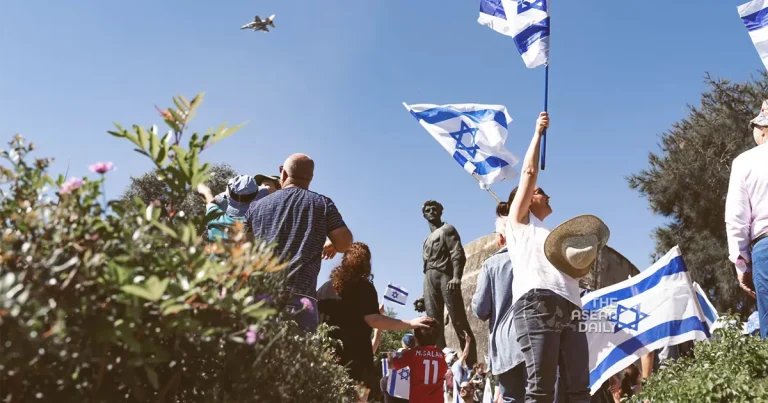1-11-2023 (TEL AVIV) Recent incidents of antisemitism have seen a significant rise around the world since the attack on southern Israel by Hamas gunmen on October 7 and the subsequent war launched by Israel in the Gaza Strip. Reports of verbal abuse, threats, graffiti, and physical assaults targeting Jews have increased, accompanied by a surge in online slurs and hate speech likening Jews to parasites and snakes.
The escalation in antisemitic acts has left Jewish communities feeling fearful and vulnerable. Anthony Adler, a 62-year-old resident of London’s Golders Green neighborhood, described the current climate as “the scariest time to be Jewish since World War Two.” Adler, who runs three Jewish schools, made the difficult decision to temporarily close two of them due to concerns over potential attacks on students. Security measures have been heightened across all three schools.
Available data from countries including the United States, Britain, France, Germany, and South Africa reveals a consistent pattern: the number of antisemitic incidents has risen by several hundred percent compared to the same period last year. Islamophobic incidents have also increased in certain countries, such as the United States and Britain, since October 7.
The incidents range from verbal abuse and defacing of Jewish properties to physical assaults. Many perpetrators invoke anger over the deaths of Palestinians during Israel’s bombardment of Gaza as justification for targeting Jews. The conflating of Jewish people with the Israeli government’s policies and the suffering of Palestinian children has contributed to the surge in antisemitism.
The intensity of the recent Gaza conflict, coupled with the traumatic events of October 7, has intensified the climate of fear among Jewish communities. Rabbi Alexander Boroda, president of Russia’s Federation of Jewish Communities, highlighted the alarming incident in Russia’s Dagestan region where a crowd stormed an airport, seeking to harm Jews arriving from Tel Aviv. He noted that anti-Israeli sentiment had transformed into open aggression against Russian Jews.
Similar incidents, albeit less extreme, have occurred worldwide, underscoring the fears and tensions within Jewish communities. In Buenos Aires, a prominent Jewish school asked students not to wear their uniforms to avoid being easily identifiable, while other schools canceled outdoor activities. At Cornell University in upstate New York, security was heightened at the Center for Jewish Living due to online threats, including a call for a bombing. Johannesburg witnessed pro-Palestinian protesters tearing down pictures of Israeli hostages in Gaza from the walls of a community center during a Shabbat service at a nearby synagogue.
Official responses to the surge in antisemitism have varied across countries. In the United States and Western Europe, authorities have swiftly expressed strong support for Jewish communities, denounced antisemitism, and, in some cases, bolstered security measures. The Israeli government advised citizens to reconsider travel plans abroad and urged Israelis residing overseas to remain vigilant and avoid demonstrations. However, China, known for its censorship of sensitive content on social media, has not taken any discernible action to curb the torrent of antisemitic vitriol online.




